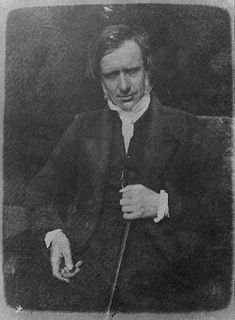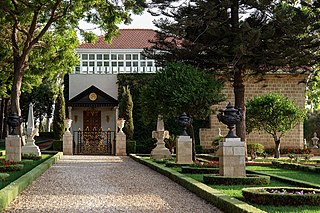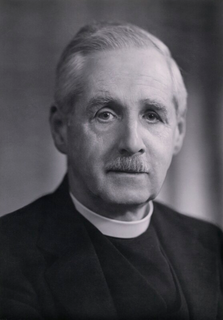A Quote by William Shakespeare
Yet, for I know thou art religious
And hast a thing within thee called conscience,
With twenty popish tricks and ceremonies
Which I have seen thee careful to observe,
Therefore I urge thy oath; for that I know
An idiot holds his bauble for a god
And keeps the oath which by that god he swears,
To that I'll urge him: therefore thou shalt vow
By that same god, what god soe'er it be,
That thou adorest and hast in reverence,
To save my boy, to nourish and bring him up,
Or else I will discover naught to thee.
Related Quotes
Beware, I pray thee, of presuming that thou art saved. If thy heart be renewed, if thou shalt hate the things that thou didst once love, and love the things that thou didst once hate; if thou hast really repented; if there be a thorough change of mind in thee; if thou be born again, then hast thou reason to rejoice: but if there be no vital change, no inward godliness; if there be no love to God, no prayer, no work of the Holy Spirit, then thy saying "I am saved" is but thine own assertion, and it may delude, but it will not deliver thee.
Compassionate Saviour! We welcome Thee to our world, We welcome Thee to our hearts. We bless Thee for the Divine goodness Thou hast brought from heaven; for the souls Thou hast warmed with love to man, and lifted up in love to God; for the efforts of divine philanthropy which Thou hast inspired; and for that hope of a pure celestial life, through which Thy disciples triumph over death.
What an honourable thing is it to be fishers of men! How great an honour shouldst thou esteem it, to be a catcher of souls! We are workers together with God, says the apostle. If God has ever so honoured thee, O that thou knewest it, that thou mightst bless his holy name, that ever made such a poor fool as thee to be a co-worker with him. God has owned thee to do good to those who were before caught. O my soul, bless thou the Lord. Lord, what am I, or what is my father's house, that thou hast brought me to this?
Late have I loved Thee, O Lord; and behold, Thou wast within and I without, and there I sought Thee. Thou was with me when I was not with Thee. Thou didst call, and cry, and burst my deafness. Thou didst gleam, and glow, and dispell my blindness. Thou didst touch me, and I burned for Thy peace. For Thyself Thou hast made us, and restless our hearts until in Thee they find their ease. Late have I loved Thee, Thou Beauty ever old and ever new. Thou hast burst my bonds asunder; unto Thee will I offer up an offering of praise.
Sin! Sin! Thou art a hateful and horrible thing, that abominable thing which God hates. And what wonder? Thou hast insulted His holy majesty; thou hast bereaved Him of beloved children; thou hast crucified the Son of His infinite love; thou hast vexed His gracious Spirit; thou hast defied His power; thou hast despised His grace; and in the body and blood of Jesus, as if that were a common thing, thou hast trodden under foot His matchless mercy. Surely, brethren, the wonder of wonders is, that sin is not that abominable thing which we also hate.
If any friend desire thee to be his surety, give him a part of what thou hast to spare; if he press thee further, he is not thy friend at all, for friendship rather chooseth harm to itself than offereth it. If thou be bound for a stranger, thou art a fool; if for a merchant, thou puttest thy estate to learn to swim.
Be not afraid of those trials which God may see fit to send upon thee. It is with the wind and the storm of tribulation that God, in the garner of the soul, separates the true wheat from the chaff. Always remember, therefore, that God comes to thee in thy sorrows as really as in thy joys. He lays low and He builds up. Thou wilt find thyself far from perfection if thou dost not find God in everything.
This new birth in Christ, thus firmly believed and continually desired, will do everything that thou wantest to have done in thee, it will dry up all the springs of vice, stop all the workings of evil in thy nature, it will bring all that is good into thee, it will open all the gospel within thee, and thou wilt know what it is to be taught of God.
For the power Thou hast given me to lay hold of things unseen: For the strong sense I have that this is not my home:For my restless heart which nothing finite can satisfy: I give Thee thanks, O God. For the invasion of my soul by Thy Holy Spirit: For all human love and goodness that speak to me of Thee: For the fullness of Thy glory outpoured in Jesus Christ: I give Thee thanks, O God.
Beneficence is a duty. He who frequently practices it, and sees his benevolent intentions realized, at length comes really to love him to whom he has done good. When, therefore, it is said, "Thou shalt love thy neighbor as thyself," it is not meant, thou shalt love him first and do him good in consequence of that love, but, thou shalt do good to thy neighbor; and this thy beneficence will engender in thee that love to mankind which is the fulness and consummation of the inclination to do good.






































